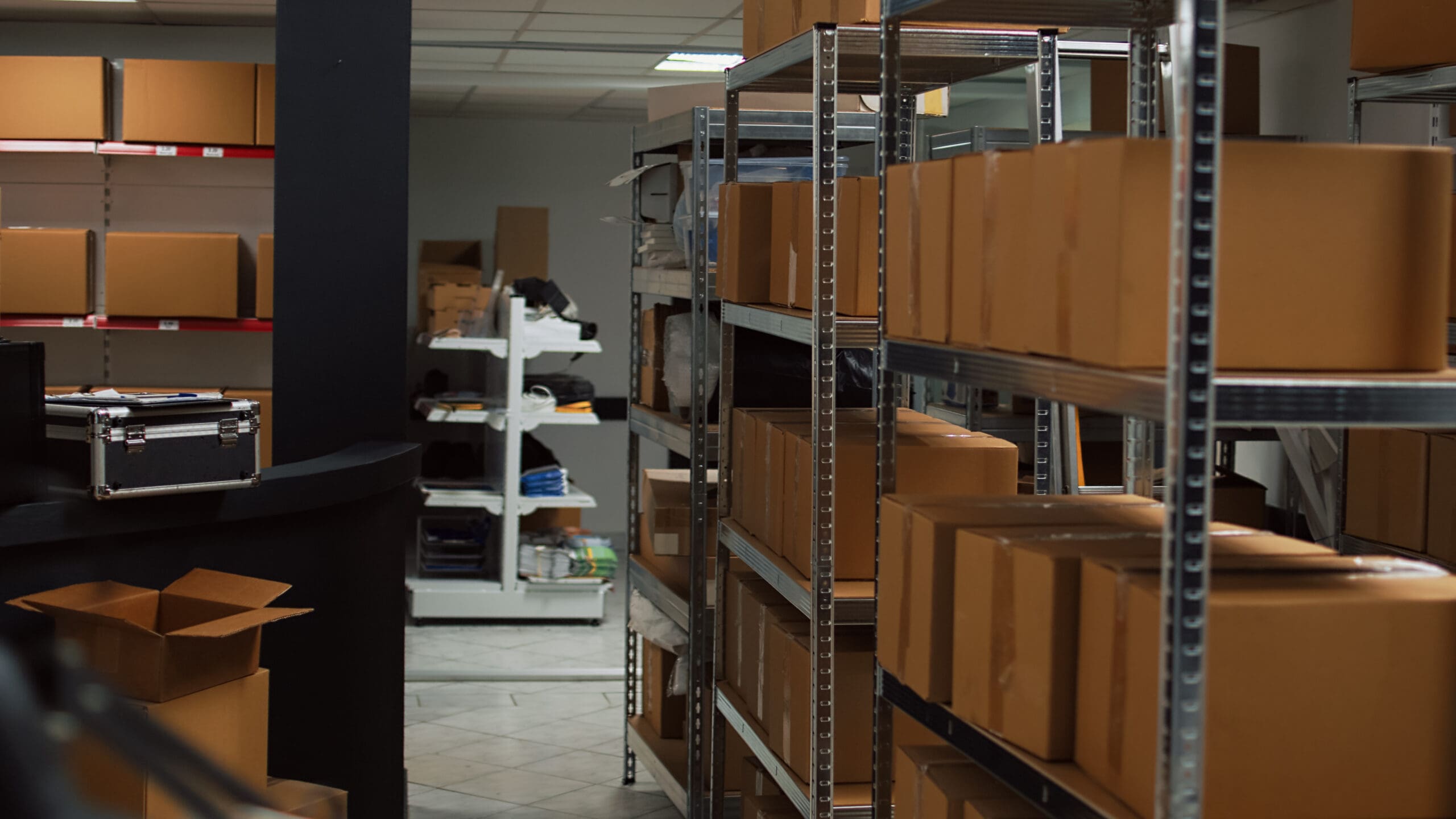One recurring theme in business is running into cash flow issues. While there are several ways to ensure that your business always has enough cash to cover your liabilities, unforeseeable circumstances such as equipment breakdown or slow-paying customers can play a role in how efficient you can manage your cash flow. Due to this, businesses would often turn to loans to fund recurring expenses without depleting their operational funds.
As a business owner, it pays to be familiar with multiple types of loans that you can apply for in case you become strapped for cash. And, when it comes to finding additional financing for additional inventory purchases, it’s no different. Fortunately, there are a couple of inventory financing loans out there that can help you restock during peak shopping seasons. But first, let’s talk about what inventory loans are and what it’s for.
What is an inventory loan?
An inventory loan is exactly as it sounds. It is a type of financing product that enables businesses to purchase inventory upfront for products that will be sold at a later date. The purchased inventory serves as collateral for the loan and can be seized by the lender in case the borrower defaults. Inventory financing loans are commonly used by businesses that have exhausted other possibilities for financing.
Who should consider inventory financing loans?
Although most product-based businesses can use inventory financing loans, this type of financing product is mostly used by retailers, wholesalers, distributors, manufacturers, and other businesses that experience a high inventory turnover rate. If you’re unsure about whether or not an inventory financing loan will meet your business’s needs, ask yourself the following questions:
- How much inventory do I need?
- Can I afford additional inventory purchases?
- Am I capable of repaying an inventory loan?
- Do I have an in-demand inventory?
- Do I have a reliable inventory management system?
- How long will the process take before I can access additional funding?
Answering these questions will help you determine if an inventory financing loan is right for you. However, it does not stop there. You would also have to familiarize yourself with the many different types of inventory loan options that you may be able to qualify for.
What are the different types of inventory loans?
While most businesses prefer term loans and lines of credit to fund their inventory purchases, there are times when other funding options provide a better alternative for your current financial needs. In this section, we will discuss the different types of inventory loans that businesses may want to consider depending on their circumstances.
Term loans
Term loans are granted as an upfront payment that business owners repay with interest over a certain period. As one of the most common forms of business loans, this type of inventory financing loan is perfect for businesses that have built a strong credit history and constantly experience strong demand. However, it is important to note that term loans may be difficult to qualify for.
- What we like:
- Paid in predictable monthly installments
- Competitive interest rates
- High loan limits
- What we don’t like:
- It may be difficult to qualify for
- Requires excellent credit
- The review and approval process can take weeks
Line of credit
Since lines of credit are known for having a revolving credit line, it is a perfect option for businesses that need regular access to extra capital. Once approved, businesses will be able to access a specified amount of funding that borrowers can draw cash from as they see fit. Another great thing about lines of credit is that you only pay interest on the borrowed amount and not the total amount available.
- What we like:
- Funds can be accessed as needed
- Only pay interest on the amount borrowed
- Can be used for most business expenses
- What we don’t like:
- It may come with variable interest rates
- The due diligence process can take weeks
- Higher chances of overspending
Merchant Cash Advance
A merchant cash advance is a great financing alternative for businesses that have tried to secure more traditional types of financing. Merchant cash advances involve lenders providing cash advances to borrowers in exchange for an agreed-upon percentage of future sales. Usually, lenders analyze your sales performance to determine if you will be able to pay back a cash advance. Since this is a type of short-term financing solution, borrowers should expect higher than normal interest rates compared to other financing options.
- What we like:
- Can be easier to acquire as opposed to other types of inventory loans
- No need for upfront collateral
- Can be a great option for businesses with bad credit
- What we don’t like:
- May come with high interest rates
- Should only be treated as a short-term funding solution
- Easy to get trapped in a debt cycle
Business Credit Cards
Like lines of credit, business credit cards can be used to cover recurring expenses while earning points and rewards. When evaluating business credit cards, make sure to look for 0% introductory APR (annual percentage rate) promotions to make the most out of interest-free purchases.
- What we like:
- Easy to qualify for
- Funds can be accessed as needed
- Borrowers can take advantage of rewards and incentives
- What we don’t like:
- May come with high interest rates
- May present some security challenges
- Potential for misuse
SBA Loans
Probably the most popular out of the different types of SBA loans is the Standard 7(a) loan. What makes the Standard 7(a) loan a popular choice for businesses is its high loan amounts and flexible repayment terms – making it ideal for businesses that are trying to purchase additional inventory while experiencing cash flow issues. While SBA loans seem like an ideal solution to your business’s funding needs, it is important to note that it is one of the most difficult loans to acquire.
- What we like:
- Comes with low interest rates
- Flexible repayment terms
- High loan limits
- What we don’t like:
- The review and approval process can take weeks
- Most, if not all, SBA loans require a personal guarantee
- Excellent credit is often required
Crowdfunding
As the name implies, crowdfunding is a method of raising capital by tapping into a “crowd” of people and asking them to donate small amounts of money. Instead of taking out a traditional bank loan, businesses can use crowdfunding to expand their operations, introduce a new product, fund a new business venture, or restock their inventory. This type of financing enables businesses to tap into a wider investor pool and raise money quickly without giving up their equity.
- What we like:
- Validates your business idea (if the campaign is successful)
- You can keep all of your equity (depending on the type of crowdfunding strategy you choose)
- You can tap into consumers that already believe in your brand/industry
- What we don’t like:
- High possibility of not funding your intended amount
- Risk of losing intellectual property
- Only suitable for product-based businesses
For a crowdfunding effort to succeed, businesses must carefully plan their strategy to capture the attention of the general public. It also pays to familiarize yourself with a number of crowdfunding platforms that cater to what you currently need.
For those looking to fund business growth, Kickfurther can be a great way to acquire additional growth capital. With Kickfurther, businesses have an alternative funding option to raise the capital needed for additional inventory purchases. On Kickfurther, brands can fund inventory purchases and begin making payments on the new inventory only once it sells, eliminating the cashflow bottleneck that the immediate repayment schedule or daily debits from other funding solutions cause.
Which inventory loan is best for your business?
Is there such a thing as a “best inventory loan for businesses?” Unfortunately, there is no one-size-fits-all answer to this question. It highly depends on the loans you will be able to qualify for and the lender you will be working with. While it seems tedious, arming yourself with enough know-how about the different financing options available to you is important to determine which type of inventory loan is perfect for your business’s needs.
How can you determine which type of loan is best for your inventory needs?
To better determine which type of loan is best for your inventory needs, you must study the following factors:
- Loan amount – How much funding do you need? When applying for a loan, make sure to have a clear repayment plan. Never take out an amount that you know you can’t pay back. Remember, the higher the loan amount, the more interest you’ll pay.
- Interest rates – Keeping the loan amount reasonable means you will also pay a reasonable amount in interest. When it comes to financial decisions, it’s only natural to prioritize how much interest you’ll pay as it would eat a big chunk out of your profits.
- Repayment flexibility – One of the most important things to consider when taking out a loan is the repayment terms. More often than not, flexible repayment periods mean lower monthly installments paid for a longer duration.
- Fees and charges – Like other forms of funding, some inventory loans come with additional fees and charges such as appraisal fees, origination fees, late fees, and prepayment penalties.
Keep in mind that the factors to consider depend on a case-by-case basis. This is by no means a comprehensive list of factors to take into account to be able to determine which type of loan is best for your inventory needs. The best course of action to take is to get in touch with your potential lender and ask about the specific loan you are trying to acquire.
Key Takeaways: How to Determine Which Type of Inventory Financing Loan Is Right for Your Business?
- Understand why you need a loan.
- Prepare for the diligence process, which can vary depending on the funding you are planning to apply for.
- Familiarize yourself with the variety of loans out there to better determine if a particular solution meets your needs better than another.
- Consider the loan amount, interest rates, repayment terms, and additional fees and charges before deciding on a loan.
- And lastly: be sure to shop around to compare the different inventory financing loans before settling on a loan.









